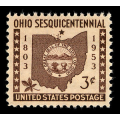One of the fastest routes to licensure as a registered nurse (RN) is an associate degree program. A traditional ADN curriculum requires two years of fulltime study and prepares graduates to sit for the National Council Licensure Examination for Registered Nurses (NCLEX-RN). Many of California’s approved ADN schools also offer an advanced placement option for licensed vocational nurses (LVNs), often called an LVN-to-RN bridge program. Indeed, several schools like Allan Hancock College and College of the Siskiyous offer only the LVN-to-RN track.
ADN Program Rankings
To help aspiring nurses evaluate their options, the research team at Nursing Schools Almanac has compiled an extensive database of student performance on the NCLEX-RN licensure exam. We analyzed this data over the past decade to calculate each school’s NCLEX pass rate among first-time test-takers. We then used this metric to rank the associate degree in nursing (ADN) programs in each major state. You can find the detailed results of our analysis below.
Rankings by State (A-K)
Rankings by State (L-N)
Rankings by State (O-Z)
For our 2024 rankings of ADN programs, the research team at Nursing Schools Almanac compiled an extensive database of student performance on the National Council Licensure Examination for Registered Nurses (NCLEX-RN). Aspiring registered nurses in the United States must pass this examination before they may commence practice. Thus, student performance on the NCLEX-RN exam provides an excellent benchmark for comparing the relative quality of associate degree programs.
For our 2024 rankings of ADN programs, the research team at Nursing Schools Almanac compiled an extensive database of student performance on the National Council Licensure Examination for Registered Nurses (NCLEX-RN). Aspiring registered nurses in the United States must pass this examination before they may commence practice. Thus, student performance on the NCLEX-RN exam provides an excellent benchmark for comparing the relative quality of associate degree programs.
For our 2024 rankings of ADN programs, the research team at Nursing Schools Almanac compiled an extensive database of student performance on the National Council Licensure Examination for Registered Nurses (NCLEX-RN). Aspiring registered nurses in the United States must pass this examination before they may commence practice. Thus, student performance on the NCLEX-RN exam provides an excellent benchmark for comparing the relative quality of associate degree programs.
Employment of registered nurses is projected to grow seven percent over the next decade, faster than the overall job market. Many aspiring RNs choose to enroll in an associate degree program so that they can enter the workforce quickly. An ADN curriculum is less time-consuming than a bachelor of science in nursing (BSN) degree, and it adequately prepares students for the National Council Licensure Examination for Registered Nurses (NCLEX-RN) and subsequent employment.
For our 2024 rankings of ADN programs, the research team at Nursing Schools Almanac compiled an extensive database of student performance on the National Council Licensure Examination for Registered Nurses (NCLEX-RN). Aspiring registered nurses in the United States must pass this examination before they may commence practice. Thus, student performance on the NCLEX-RN exam provides an excellent benchmark for comparing the relative quality of associate degree programs.
For our 2024 rankings of ADN programs, the research team at Nursing Schools Almanac compiled an extensive database of student performance on the National Council Licensure Examination for Registered Nurses (NCLEX-RN). Aspiring registered nurses in the United States must pass this examination before they may commence practice. Thus, student performance on the NCLEX-RN exam provides an excellent benchmark for comparing the relative quality of associate degree programs.
One of the fastest routes to licensure as a registered nurse (RN) is an associate degree program. A traditional ADN curriculum requires two years of fulltime study and prepares graduates to sit for the National Council Licensure Examination for Registered Nurses (NCLEX-RN). Many of California’s approved ADN schools also offer an advanced placement option for licensed vocational nurses (LVNs), often called an LVN-to-RN bridge program. Indeed, several schools like Allan Hancock College and College of the Siskiyous offer only the LVN-to-RN track.
For our 2024 rankings of ADN programs, the research team at Nursing Schools Almanac compiled an extensive database of student performance on the National Council Licensure Examination for Registered Nurses (NCLEX-RN). Aspiring registered nurses in the United States must pass this examination before they may commence practice. Thus, student performance on the NCLEX-RN exam provides an excellent benchmark for comparing the relative quality of associate degree programs.
One of the fastest paths to licensure as a registered nurse is an associate’s degree in nursing, or ADN, program. Associate’s degree options vary by school and may include an associate of science (AS) and/or an associate of applied science (AAS) track. These programs take approximately two years of fulltime study to complete, and they prepare graduates to sit for the National Council Licensure Examination for Registered Nurses (NCLEX-RN).
The state of Florida has an extensive number of associate’s degree in nursing programs. In fact, the Florida Board of Nursing has approved an ADN program at more than 150 campuses statewide. These programs prepare students for initial licensure as a registered nurse through extensive coursework, laboratory exercises, and clinical experiences.










